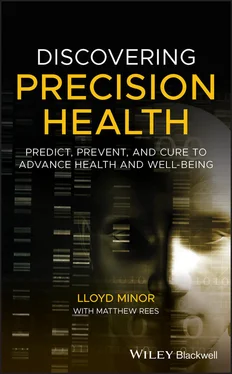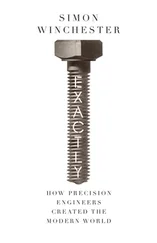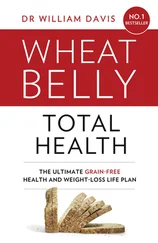This approach is what we in Stanford Medicine have labeled “Precision Health” because it helps individuals thrive based on all factors specific to them, from their genetics to their lifestyle choices to their environment. It is based on the powerful idea that health care should promote health and wellness as much as it defeats disease.
Simply stated, the goals of Precision Health are to predict, prevent, and cure, precisely . And in that order, because more accurate prediction of propensity for disease will lead to more specific approaches for prevention. Even in cases where disease cannot be prevented altogether, diagnosing diseases much earlier in their course will mean that our ability to achieve cures will be greater than now. All too often today we identify diseases much too late to have the type of treatment outcome all of us would like to achieve.
THE PRECISION HEALTH PAST—AND PRESENT
The principles underpinning Precision Health reach back many years. The authors of a paper presented at a meeting of the American Public Health Association in 1873 wrote that “the custom of society must be changed so that the physician is employed to prevent rather than to cure diseases” [4]. Twenty years later, William Osler—often thought of as the originator of modern medicine—helped to found the medical school at Johns Hopkins University. And he was clear about the need for patient‐centered medicine. “The good physician,” said Osler, “treats the disease; the great physician treats the patient who has the disease.” As a staunch advocate of prevention, Osler was well ahead of his time. He believed in both the power of scientific evidence and the power of bedside medicine. Precision Health is Osler’s heir—the modern incarnation of his dual focus on rigorous science and the enduring physician‐patient bond.
A focus on prevention was also at the heart of groundbreaking research that began in 1948. That year marked the launch of the Framingham Heart Study, which was an in‐depth exploration of cardiovascular disease. At the time, the disease affected one of every three men in the United States, and it was twice as common as cancer [5]. Yet its cause was unknown. To better understand cardiovascular disease, an arm of the National Institutes of Health recruited more than 5,200 volunteers, between the ages of 30 and 59, in the Massachusetts town of Framingham to participate in a study. Each of the volunteers would be examined every two years, for a period of 20 years.
It became the most comprehensive such study ever undertaken and it continues today, with its third generation of participants. The discoveries it has brought forth have greatly expanded our understanding of the causes of cardiovascular disease and how to prevent it, through diet, exercise, and avoiding tobacco. Data from the study is the foundation of several risk prediction calculators for heart conditions, along with diabetes, fatty liver disease, and hypertension [6].
The knowledge unlocked by the Framingham Heart Study is a reminder of why researchers need to continue exploring the causes of different diseases—and to focus on preventing those diseases. Looking into the future, Project Baseline, a contemporary sequel to the Framingham study, holds the promise of dramatically increasing our understanding of health and disease by analyzing an enormously greater number of parameters. Like the Framingham study, Project Baseline, which I describe in more detail in the conclusion, is a longitudinal cohort study. One of its goals is tracking these parameters, and the health of the study volunteers, for a period of years.
KEY PRINCIPLES OF PRECISION HEALTH
There are many different dimensions of Precision Health, which I will elaborate on in this chapter and throughout the book. But some of the key features include the following:
Predictive and Preventive
Precision Health draws on the enablers of precision medicine—genomics, big data science, and regenerative medicine—but applies them in a predictive and proactive way. While precision medicine implies that individuals who get sick are treated precisely, Precision Health is focused on a holistic approach to keeping people healthy through targeted interventions and stopping disease before it starts. It seeks to understand the features of disease that explain why some people get sick when others do not, and which treatments, tests, and lifestyle changes will help prevent disease in each individual. When it isn’t possible to altogether prevent a disease, Precision Health seeks to improve diagnostics such that diseases are detected much earlier and treated more effectively.
With Precision Health, all forms of health and medical care are tailored to individual variations. That means doctors are able to provide every therapy based on what’s known about a patient: their genetics, their metabolomics, all their ‐omics, their imaging, everything about them. As my colleague Thomas Robinson says, Precision Health is about identifying the right interventions, for the right person, at the right place, at the right time, in the right sequence. And information technology is deployed so that health professionals can confidently tell their patients, “You are going to benefit most from doing the following.”
Health care today is often a complex and confusing journey, characterized by fragmentation and care on a disease‐by‐disease basis. Precision Health makes providers own the complexity of care for their patients, providing care that is seamless, coordinated around their needs, and based on the best science.
Precision Health is focused on empowering individuals to monitor their own health. It breaks with the long‐standing practice of people interacting with the medical system sporadically (the annual “check‐up”)—or when driven by illness or disease. Patients and their families get involved in the care delivery experience through practices such as continuous monitoring (as in the example provided in the scenario above). A rough parallel comes from the way in which financial institutions use algorithms to monitor their customers’ spending. If there’s suspicious activity, customers may be contacted and asked to confirm certain transactions. We are getting to a point where technologies can do the same monitoring of our bodies, and immediately alert us—or our health care team—if something is amiss.
The United States performs poorly on some broad measures of health compared to other developed nations. Precision Health delivers value by focusing on ways to both improve outcomes and cut costs. These two goals can be achieved in tandem. Precision Health seeks to lower costs through early detection, prevention, accurate risk assessment, and efficiencies in care delivery.
Precision Health applies to people of all ages, and it’s an attempt to understand all the different trajectories of life. But the health care of children, coupled with maternal and fetal health, are given special emphasis, since they are at the beginning of life’s trajectory. Mothers have an extraordinary influence on the future life of their children—and that influence begins even before they become pregnant. New technologies and new approaches are being used to look at pregnancy in entirely new ways. Everything we learn becomes part of large data sets to create a comprehensive picture of pregnancy. We can then extract information for the purpose of predicting—and preventing—certain outcomes.
“High Touch” and “High Tech”
In the “high touch” environment we want to develop, physicians will return to some of the wisdom of figures like William Osler. Doctors need to recognize the intimate bonds with their patients when performing hands‐on examinations and listen to their concerns with empathy. This is part of a time‐honored ritual and enables health professionals to gain critical information that differs from what they learn through lab tests and radiological scans. This kind of rich, nuanced data—what is important to patients, what they fear, how their symptoms manifest and how they feel—must also factor into a truly holistic approach to health care. As my Stanford colleague Abraham Verghese has written, “True clinical judgment is more than addressing the avalanche of blood work, imaging and lab tests; it is about using human skills to understand where the patient is in the trajectory of a life and the disease, what the nature of the patient’s family and social circumstances is and how much they want done” [7].
Читать дальше












